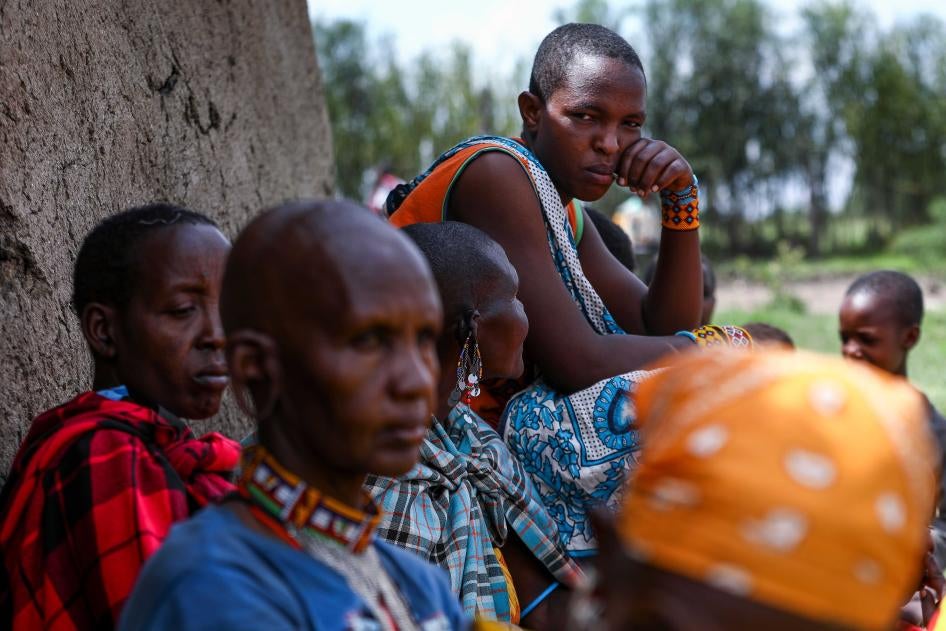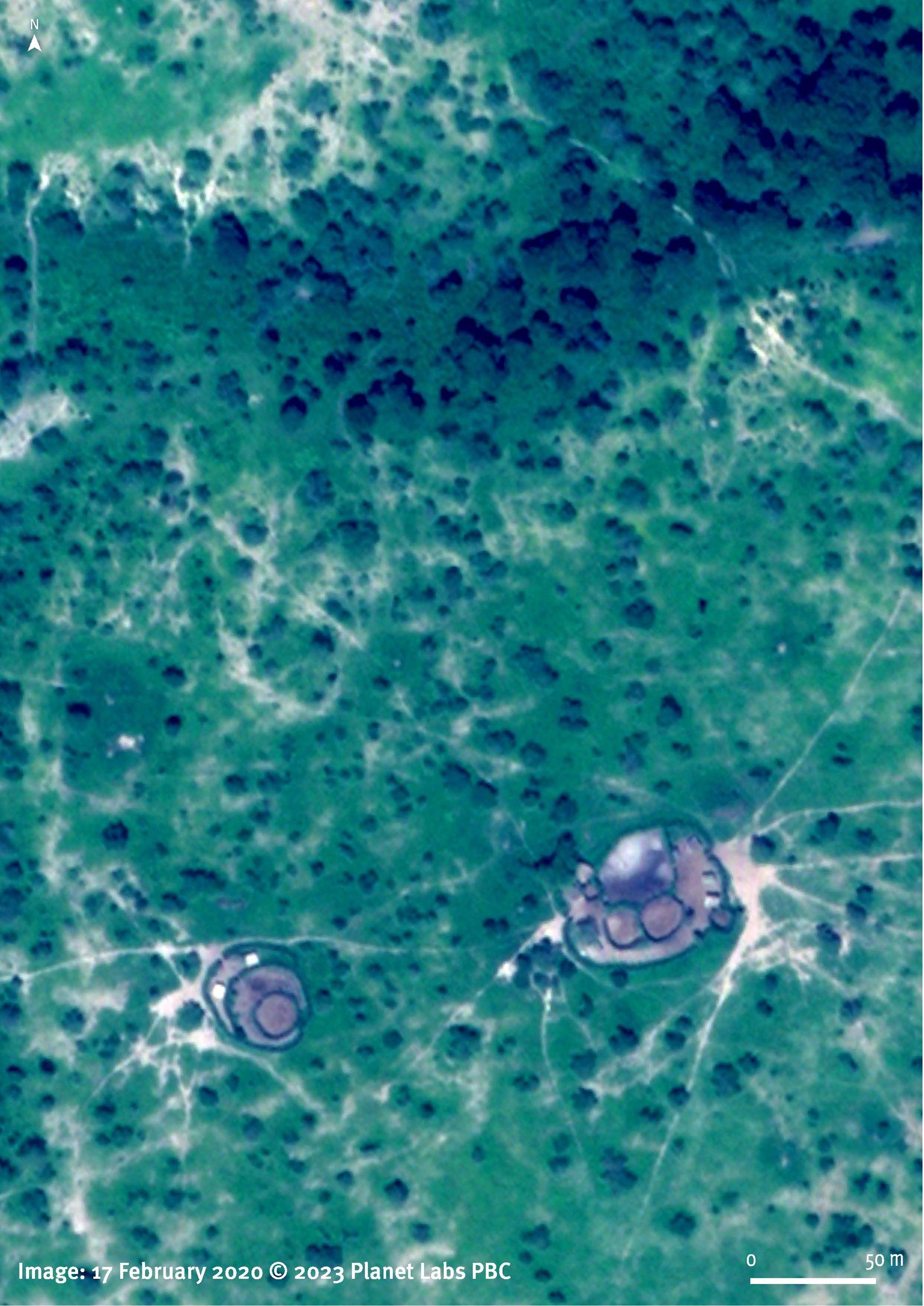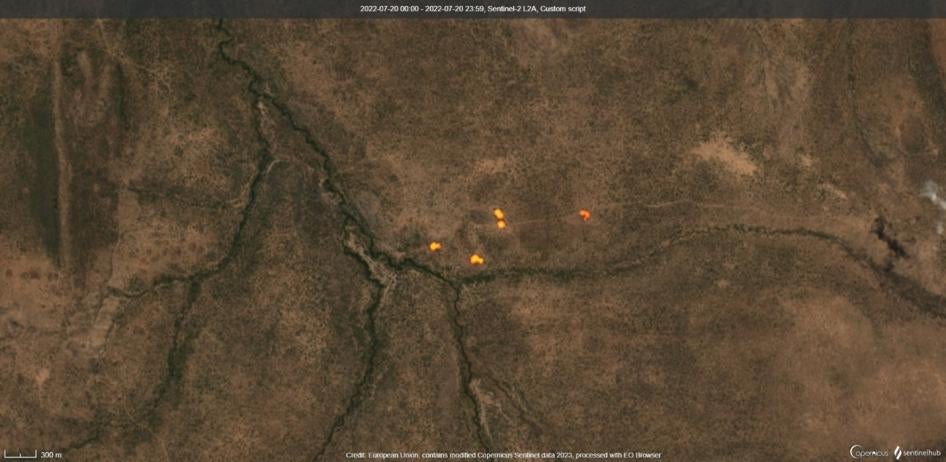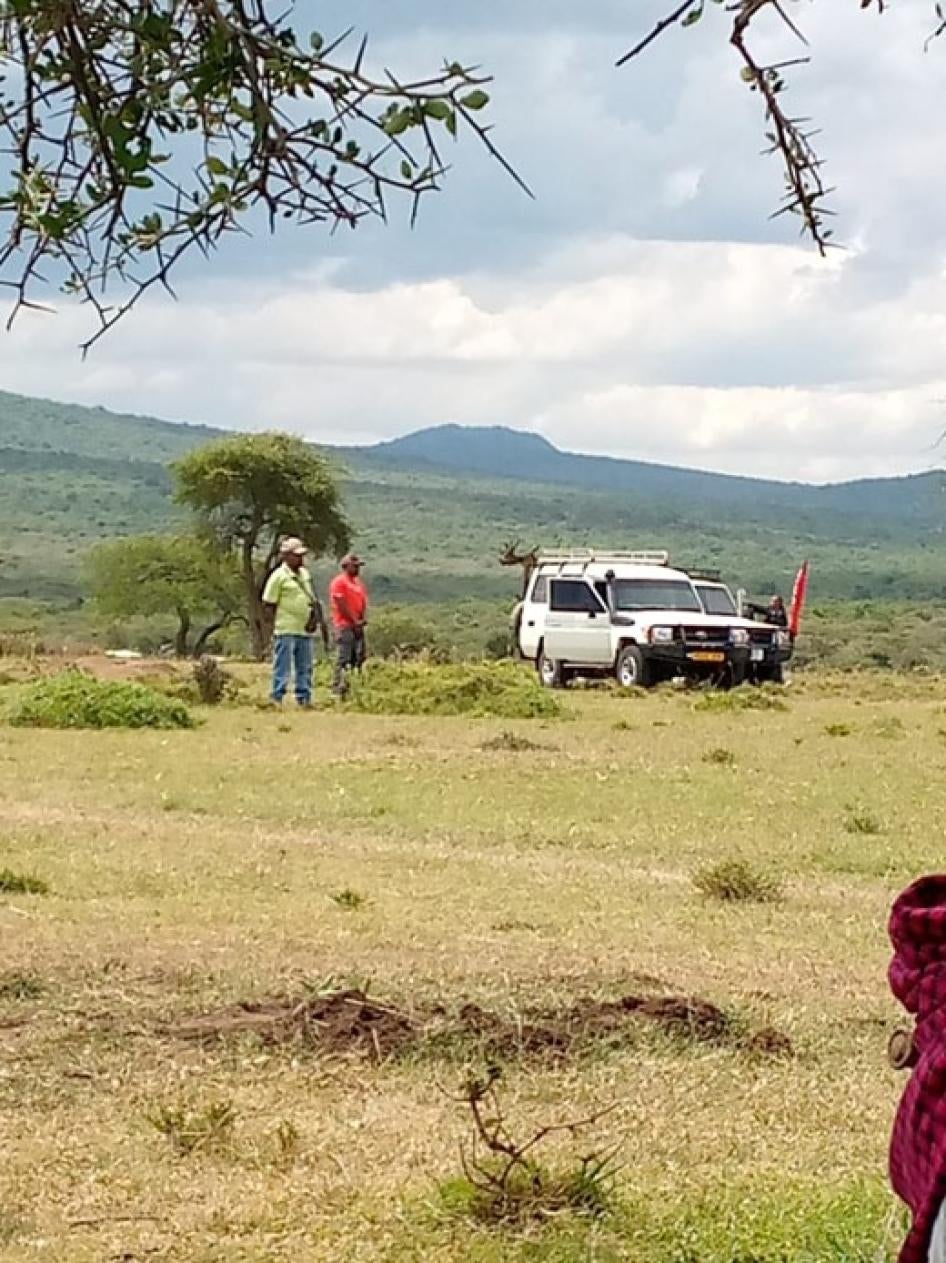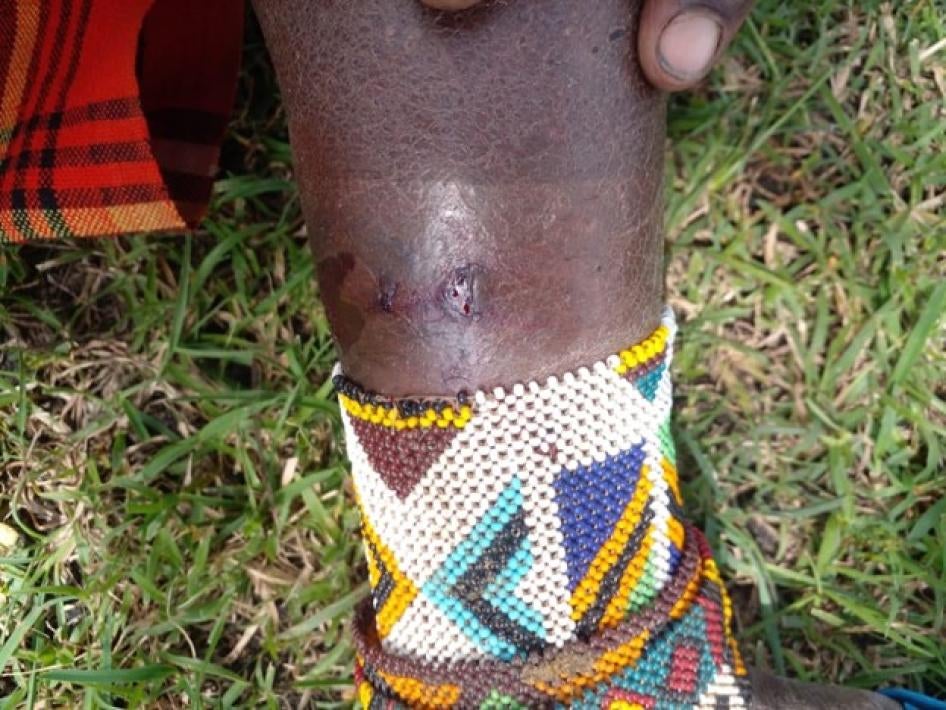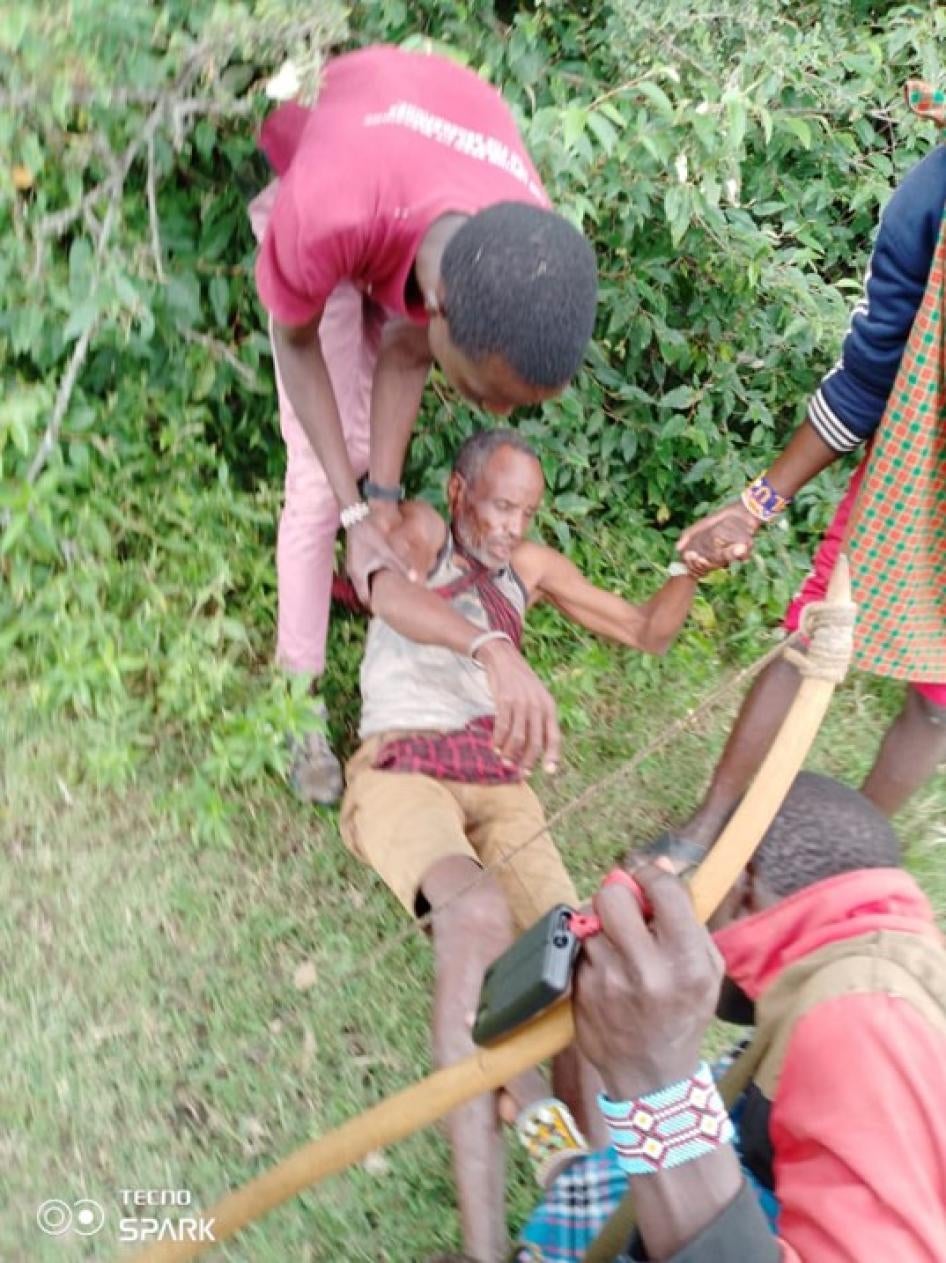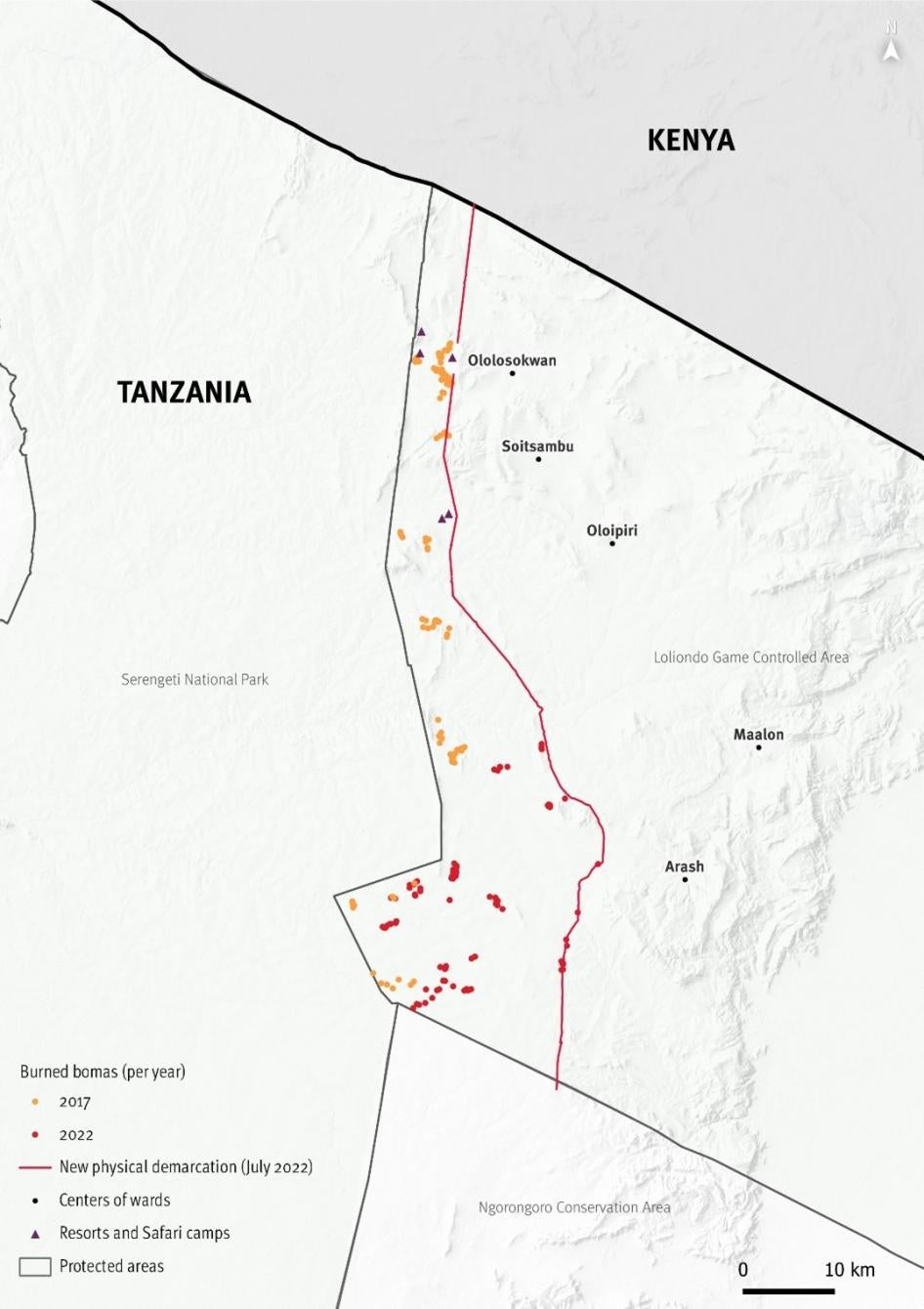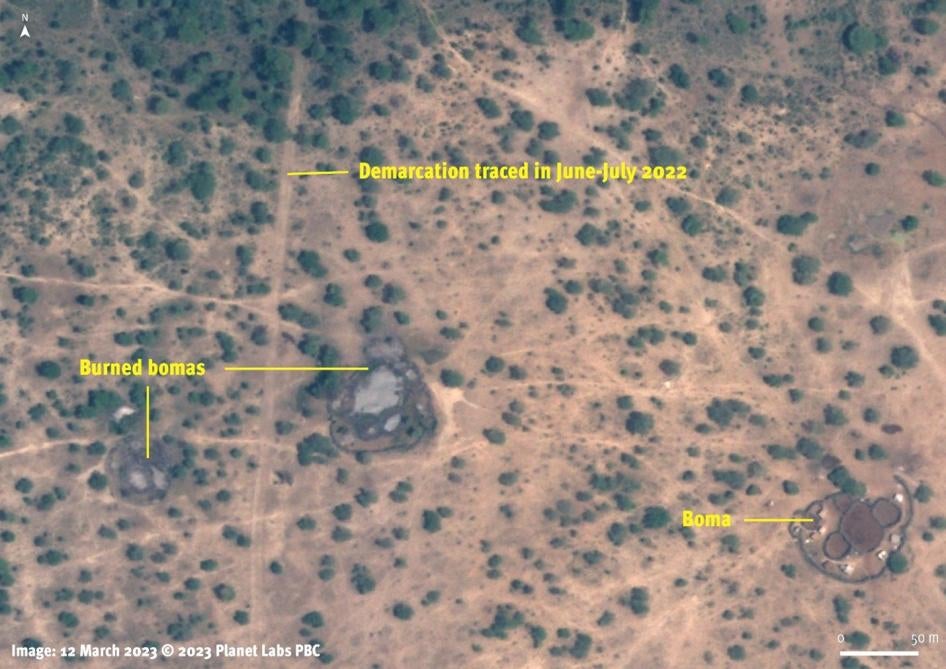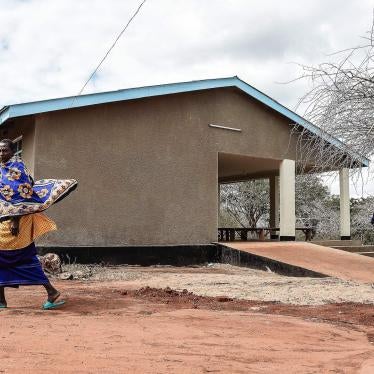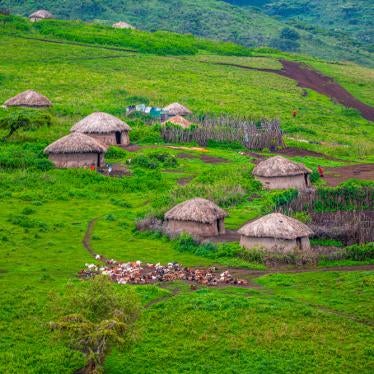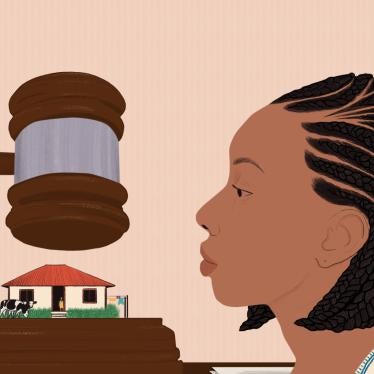(Nairobi) – The Tanzanian government’s forced eviction of Maasai communities from areas in northern Tanzania they have long inhabited violates their rights to land, livelihood, and culture, Human Rights Watch said today. Since June 2022, the authorities have engaged in abusive and unlawful tactics, including beatings, shootings, sexual violence, and arbitrary arrests to forcibly evict residents from their land.
The government announced on June 6, 2022 that it would demarcate 1,500 square kilometers of village land as a game reserve, prohibiting the primarily pastoralist Maasai residents of Loliondo division, Ngorongoro district, from living on the land, using it for grazing, or even entering the area to seek water for household and agricultural use. Community members told Human Rights Watch they were not adequately consulted prior to the decision, as required by Tanzanian law.
“Tanzania’s displacement of Maasai from their traditional land has been devastating and puts their culture’s survival at risk,” said Oryem Nyeko, Tanzania researcher at Human Rights Watch. “The government should stop seizing Maasai land and adopt a conservation model that respects the rights of affected communities.”
Between June and December 2022, Human Rights Watch interviewed 45 people, including victims of violence and intimidation by government security forces and game rangers. These abuses follow a pattern of violations against Maasai in the area. Since at least 2009, the government has forcibly evicted thousands of people from Loliondo to open areas for conservation, tourism, and trophy hunting. Human Rights Watch’s analysis of satellite imagery of the area found that in July 2022 about 90 homesteads and animal enclosures were burned within the demarcated area.
On June 8, 2022, two days after the government announcement, dozens of police, military personnel, and game rangers arrived in Loliondo to demarcate the proposed game reserve. Over several days, the security forces arbitrarily arrested and detained 10 community leaders and fired teargas and rubber bullets at protesters and bystanders, injuring at least 30, including women, children, and older people. Witnesses said police took from his home an 84-year-old man who has not been seen since. Security forces also destroyed residents’ property and shot and killed livestock. Up to 2,000 residents from various villages across Loliondo fled to seek refuge and medical treatment in neighboring Kenya.
The authorities also arbitrarily arrested and detained a human rights defender and a community member who had shared photos and videos of the violence and its aftermath on social media.
Since then, security forces have continued to commit abuses against Loliondo residents, with victims and witnesses recounting several instances of rape and other sexual violence, nightly raids, and shootings into homes. Residents said game rangers, who are under the authority of the Ministry of Natural Resources and Tourism, have confiscated livestock that had roamed into the demarcated game reserve, initially extorting exorbitant fees to return them and later auctioning them off.
The government contends that blocking access to the area is necessary to protect “the ecological integrity of the entire Great Serengeti,” the area of northern Tanzania involved, and announced that it was “investing in improving pasture grounds, markets for livestock and investment products, plus the provision of drinking water for both people and livestock.” In June 2022, the Natural Resources and Tourism Ministry stated that there are “no settlements” in the area and “therefore there is no eviction.”
Human Rights Watch wrote to Tanzania’s Ministries of Natural Resources and Tourism, Home Affairs, and Health and Social Welfare, and the Police Force to share its research findings and request information but has not received a response.
The government’s actions have led to ongoing displacement, disrupted social support systems, and weakened local safety nets. Community members told Human Rights Watch that poorer residents, especially older people and households headed by women, have been particularly affected. Hundreds of residents have lost access to pastureland, homes, and livestock, and have a relative that has not returned after fleeing to Kenya.
United Nations independent experts and the African Commission on Human and Peoples’ Rights have urged Tanzania to stop all forced evictions in Loliondo. In January 2023, the African Commission visited Ngorongoro district and raised concerns about the lack of adequate consultation and inclusion of local communities in the demarcation exercise and the use of force and threats against protesting community members.
International and African human rights instruments protect the rights to property and land of individuals and communities, including those with customary land tenure. Under international and regional law, notably the International Covenant on Economic, Social and Cultural Rights and the African Charter on Human and Peoples’ Rights, forced evictions are prohibited. Prior to carrying out lawful evictions, governments should explore all feasible alternatives in consultation with the people affected, while “avoiding, or at least minimizing, the need to use force,” the Committee on Economic, Social and Cultural Rights says, and should pay adequate compensation, including in the form of alternative land.
“The Tanzanian government should immediately stop its abusive tactics to displace Maasai communities,” Nyeko said. “The government should provide prompt redress to displaced individuals and communities and, moving forward, meaningfully consult with affected communities and protect their rights to their land, livelihoods, and culture.”
Loliondo ‘Game Control Area’
Approximately 70,000 primarily pastoralist Maasai – whose livelihoods largely depend on rearing livestock, such as cows, sheep, and goats, and subsistence crop farming – live in Tanzania’s northern Loliondo division. Loliondo encompasses the Loliondo Game Control Area (LGCA), designated in 1951 by the British colonial government. The LGCA spans 4,000 square kilometers and for decades was a multiple-use area designated for viewing and hunting wildlife while allowing people to live and farm there.
For 30 years, Tanzania has planned to designate 1,500 square kilometers of the LGCA exclusively for viewing and hunting wildlife. In 1992, the government issued hunting licenses in the LGCA, which it renewed in 2009, and in 1993 it developed a plan that earmarked 1,500 square kilometers for tourism, including viewing and hunting wildlife, that would restrict use by local communities.
In April 2013, the government announced it would allow local inhabitants of the Loliondo area to “freely utilize” 2,500 of the 4,000 square kilometers of the LGCA “for their own community development” while retaining the remaining 1,500 square kilometers exclusively as a game reserve. According to local nongovernmental organizations, the government forcibly evicted residents of the proposed area earmarked for a game reserve in 2015 and 2017.
In 2022, the government adopted a revised Wildlife Conservation Act, which enshrines a conservation model that prohibits local communities from accessing and grazing livestock in game reserves, with restrictions on grazing in game-controlled areas. Tanzanian law provides some protections for residents on village land with customary right of occupancy. It acknowledges that “traditional communities” have long used lands habitually occupied by wildlife, and sets guidance on compulsory land expropriation. But the government has ignored or inadequately carried out the relevant provisions.
On January 12, 2022, John Mongella, the Arusha regional commissioner, informed village chairmen and councilors in the Loliondo division of the government’s decision to officially demarcate the 1,500 square kilometers, creating a physical marker that would effectively block people’s access to the land.
On February 15, 2022, Prime Minister Kassim Majaliwa addressed a public “conservation stakeholders meeting” in Wasso town, Loliondo division, as a follow-up to recommendations from a parliamentary standing committee on natural resources and tourism that the authorities consult with the community. Nooloropil Moko, a Loliondo resident who attended, told Human Rights Watch that Majaliwa recognized Maasai communities as being “good for conservation” and promised that the government would not take their land.
Violence between June 8 and 13, 2022
On June 6, Mongella, after a closed-door meeting with other officials, reasserted the government’s intention to convert and demarcate the 1,500 square kilometers as a game reserve. Residents say he did not consult the community, including about resettlement to alternative land or compensation, apart from a forum the previous year.
On the morning of June 8, several vehicles carrying dozens of police, military personnel, and game rangers arrived in Arash, Oloipiri, Ololosokwan, and Piyaya villages, in Loliondo division.
On June 9, the authorities arrested and detained 10 Loliondo community leaders.
Residents said that on the same day, they gathered to share information and discuss how to respond to the demarcation. They said the meeting ended abruptly when armed Field Force Unit police officers arrived, demanded to speak with community leaders, attempted to seize a mobile phone from a resident who was recording the meeting, and told them they did not have authorization to meet. A woman who attended the meeting said that they told residents, “Demonstration is not allowed in this country.”
That evening, security officers and game rangers placed beacons to demarcate the boundaries of the proposed game reserve. When they left, Ololosokwan residents removed some beacons, resisting the authorities’ cordoning off the area. A resident said that when the authorities discovered the beacons had been uprooted, they began indiscriminately firing their guns through the night, in an apparent show of force.
Community members said that at about 10 a.m. on June 10, they gathered around the beacons to protest the demarcation and seek dialogue with the government security forces. Residents said women were at the forefront of the protest to signify the communities’ desire to talk, not fight, with the security forces.
However, witnesses said, security officers responded with violence. They indiscriminately fired teargas and rubber bullets, cut people with bush knives on their arms, and destroyed residents’ property, including motorcycles. At least 30 people were injured, including women and children. The police reported that Garlius Mwita, a policeman, was fatally shot with an arrow by the protesting residents.
Many women said that the security officers shot at them, including at people who had raised their hands to signal that they did not intend to fight. An older woman said, “We were telling [the policemen] ‘stop putting the beacons.’ They were telling us they must put them. Then they started shooting [guns] and teargas. They shot at my foot. And the [bullet ricocheted] into my left eye and leg.”
The officers chased the residents, stabbed them with bayonets, cut them with machetes, and beat people as they fled, witnesses said. Officers also attacked those who were not protesting, including people attending a wedding.
A woman said she saw officers in military uniforms beat people going to the market, elsewhere in Loliondo, in Oloipiri village, which has sections in the newly demarcated area. She said they told people to leave the demarcated area, beating and shooting those who refused.
The security officers shot teargas and bullets at an outdoor community meeting in Engong’u Niarowua, a sub-village in Ololosokwan, shooting one man in the leg.
A 72-year-old man said that security officers beat him and two other older people at his home in Ololosokwan:
We sat together, chewing tobacco. Suddenly we saw two police cars full of officers, and they said, “Kneel! Raise up your hands!” They started beating us.… I was beaten all over my body. They stabbed me with a [bayonet] on my right knee. My friends lost consciousness. After some time, I lost consciousness. I found myself at a clinic in Kenya, with lots of pain in my body.
Also in Olosokwan, security officers beat and shot 84-year-old Orais Oleng’iyo at his home, then dragged him into a police vehicle and drove off. A witness said the officers broke Oleng’iyo’s legs. As of April 2023, Oleng’iyo’s whereabouts remain unknown.
Residents said security officers also shot and killed livestock. For example, in Arash village, the authorities shot eight sheep and a calf belonging to one woman.
Denial of Health Care in Loliondo; Flight to Kenya
Residents and witnesses said violence led about 2,000 people to flee as far as 40 kilometers to southern Kenya for safety and medical treatment.
Several Loliondo residents said they went to Kenya because they could not obtain the Tanzania Police Medical Examination Form, or Police Form No. 3 (PF3), which public hospitals and dispensaries insist must be provided before treating assault victims, even if their life is in danger, though this form is not legally required.
A woman from Lopolun village said that staff at the medical centers in Loliondo would not treat her relative whom policemen had raped on June 14 because the police refused to give her the PF3 form:
In the hospital, we were told to go get a PF3 form. We asked the police for a PF3, and the police said, “No one can sue the army who was sent by the government to provide security.” It was impossible to get medical assistance to the woman who was raped. We are afraid, maybe she will be sick [sexually transmitted infection] or become pregnant.
She believes the police were concerned about legal liability:
And of course, the police are afraid that we will use it to file a case against the military. We talked about going to the district commissioner. When the police told us that these military personnel were sent by the president, we remained with no alternative.
Sexual Violence
Residents reported that security officers raped at least three women in Loliondo. A woman from Lopolun said police officers raped her relative on June 14, when her relative and other women had gone to collect water at a source in Oltulelei village.
The woman from Lopolun also said that sometime after June 13, security officers forced her neighbor and his secondary-school-aged daughter to remove their clothes and perform sex acts, saying they came to her house afterward, clearly traumatized.
A woman from Loliondo described two gang rapes by police in August, when the village men were not around: “When the women saw the police, they started running. The police ran after them.... They were five police and two women ... three who raped one woman and two who raped the other.”
Four other women also described gang rapes.
Some residents believed rape was deliberately used to intimidate and humiliate them and was not merely opportunistic. They said security forces and game rangers had committed rape during previous forced evictions in Ngorongoro district.
None of the victims could get post-rape care, including medical and mental health services.
Harassment of Residents
Activists and residents said that since the demarcation exercise, the government has threatened, intimidated, and arbitrarily arrested and detained people to silence them about the violence.
Threats by High-Level Officials
On June 10, following widespread reporting of the events in Loliondo, Prime Minister Kassim Majaliwa, speaking before Tanzania’s National Assembly, denied that police had opened fire on civilians. During the same session, the speaker of the National Assembly, Tulia Ackson, asked the government to take action against people who had recorded and circulated videos of the violence in Loliondo, accusing them of sharing misinformation.
On June 13, the government spokesperson, Gerson Msigwa, said, “People implicated with incitement and encouraging residents to aggression in [Loliondo] will be held accountable and will face justice.”
One human rights defender said he received threats because his nongovernmental organization spoke out: “After we reported what happened on June 9, I got several calls, saying, ‘What you’re doing is going to put you into very serious trouble. Stop what you’re doing.’” He said officers from the regional security committee have continued to threaten him.
Arbitrary Arrest, Detention
On the morning of June 9, the authorities summoned 10 Loliondo community leaders to a meeting at the office of the Ngorongoro district commissioner in Wasso town. The police then arrested the leaders and transferred them to the Chekereni police station, about 350 kilometers away. The authorities charged them with attempted murder and murder for the killing of a policeman on June 10 in Ololosokwan, even though the leaders were already in custody in Chekereni at that time.
The authorities arrested an additional 17 people in the district over the next three weeks, and held some of them for months. The authorities released three on bail in August, and the prosecutors dropped all the criminal charges and released the remaining 24 on November 25, after detaining them for five months.
One of the 27 described his arrest by the police while on his way home on June 15:
I was chained, beaten. And they took me to the police station in Loliondo. I was starved for two days. Then I was taken to the prison where the other leaders were being held. The police kept asking me to tell them where the other leaders were, why people fled to Kenya, who is recording those people [in Loliondo and sharing the footage with the media], who is calling meetings for the community. I said I didn’t know. I was then charged.
On June 10 at about 1 p.m., five policemen arrested the activist Isaya Olepose Laizer in Arusha after he used ClubHouse, an audio-based social media application, that day to say that Prime Minister Majaliwa had lied to Parliament about what had taken place in Loliondo the day before.
Laizer told Human Rights that policemen held him handcuffed for five hours at Usa River, 12 kilometers from Arusha. Later, they took him to Arusha’s central police station, where two policemen beat and kicked him while interrogating him about his affiliation with prominent activists. The police released Laizer without charge on June 12 and told him to report weekly to the police station for three weeks. A policeman told Laizer and his wife that if he spoke publicly again about Loliondo, they would kill him.
Climate of Fear and Inability to Return Home
Residents said that since June 2022 security officers and game wardens have maintained a heavy presence in Loliondo. Those who fled to Kenya said they are afraid to return, including because they regularly receive information that the authorities are looking for them. Some residents said they are aware that Tanzanian security officers have crossed the border to search for them in Kenya.
Human Cost of Loss of Access to Land
Human Rights Watch reviewed high-resolution satellite imagery and was able to see where the government had marked the off-limits area. The tracing of this demarcation started from the north around June 20, 2022, and was completed around July 28, 2022. Human Rights Watch’s analysis of satellite imagery of the area identified about 90 homesteads and animal enclosures destroyed by fire within the demarcated area between July 2 and July 30.
Human Rights Watch found that the land demarcation and resulting violence have directly affected residents’ access to land, water, livelihood, and culture.
Residents whose homes are in the delimited game reserve say they fear reprisals from security forces if they attempt to enter the area. Several said they have not been able to harvest crops since fleeing in June 2022.
Restricted Access to Resources
A lawyer representing the communities said the government has not compensated any affected community members for the losses they have suffered.
Loliondo residents said that because of the newly demarcated game reserve, they lost access to land they previously used for grazing their livestock and farming, and now have limited access to vital water sources. This has been compounded in recent months by an extended drought, which has caused small streams, brooks, and creeks to dry up and has affected the growth of pasture grass. Some residents said their cattle died due to reduced access to water sources.
Residents who fled also lost livestock left to roam as well as other property, including homes that the government has since destroyed.
A single mother from Ololosokwan described her struggles after losing access to her home and 7 of her 15 cows: “I have three children and they are going through a very tense moment. They depend on me for their education, food, and clothes. I depend on cattle to fund [their] school, but now the cattle cannot access the land to graze and they are dying.”
Some Loliondo residents temporarily left their children when they fled. Residents said that older community members – who could not leave because of lack of easily accessible transport, long distances and difficult terrain, and risk of animal attacks – took care of those children, taking on their financial and social burdens.
Another Ololosokwan resident was taken to Kenya for medical treatment after security officers shot her in the foot on June 10. She returned six months later. She said, “I found my house was destroyed. My children were scattered in different places and the livestock was scattered. The drought is bad. There is no food. The livestock are dying. I [eventually] found the children but not the livestock.”
Several residents said women had to find alternative water sources for daily use, traveling longer distances and increasing their exposure to attacks by security forces, including rape.
Confiscation and Auctioning of Livestock
Since June, game rangers have regularly impounded livestock that stray into the newly demarcated game reserve and demanded that owners pay hefty fines of 100,000 shillings (US$43) per cow and 25,000 shillings (US$15) per sheep or goat for their release. Some residents have been forced to abandon their animals because they cannot pay the fines.
This has disproportionately affected households headed by women, who tend to have small stocks and cannot afford to sell any to raise revenue to have cattle returned. An Ololosokwan resident said she was forced to pay 1,400,000 shillings ($600) to recover her cattle and that others in her household paid a total of 9,000,000 shillings ($3,850).
Around November, game rangers began seizing and shuttling residents’ livestock in the off-limits area several kilometers away to Serengeti National Park, obtaining court orders declaring the livestock unclaimed property, and auctioning them off. Witnesses said auctioning happens less than a week after livestock is seized, giving owners little time to obtain required authorizations to access Serengeti, further decreasing the possibility of reclaiming their livestock.
Food Insecurity
The government’s actions have heightened food insecurity for a community already facing temporary displacement, drought, and a lost harvest, and reliant on the sale of livestock to purchase food they do not grow themselves.
Loliondo residents told Human Rights Watch that their cattle are thirsty and starving, resulting in weight loss or death. And because smaller livestock fetch lower prices, their families have not earned enough money to pay for food, health care, and education needs. This is especially true for those whose family members had fled the area.
An older woman said:
June and July are harvest time. Because of what happened I didn’t harvest. I was in Kenya, my husband was [arrested and detained], all I could think about was the issue of food. Our children were hungry. Our herd of cattle was disappearing.
Right to Culture
Pastoralism is the main livelihood strategy for Maasai, and it is inherently tied to their culture. Human Rights Watch found that government restrictions on Loliondo residents’ access to land and water sources have negatively affected their way of life.
Residents said that the game reserve includes land traditionally used for grazing; for rituals, including rites of passage into adulthood; and for transferring traditional conservation techniques to younger generations.
A 71-year-old Ololosokwan resident explained the “huge connection” between Maasai culture and the land:
We protect [the land] through our traditional knowledge to produce pastures to survive for years and years.... Within the beaconed area is a sacred place called Oltorotwa. We go there to offer sacrifices during difficult times, especially drought. In a drought like this, some people should have been appointed [to offer sacrifices]. But now we cannot access the area.
Recommendations to the Government of Tanzania
- Halt all plans to forcibly evict or unlawfully displace people from the Loliondo Game Control Area, and adopt permanent safeguards against forced evictions.
- Immediately provide humanitarian assistance and support to families whose homes are within the newly demarcated game reserve, including alternative housing.
- Urgently conduct credible and impartial investigations into abuses by security forces and game rangers in Loliondo since June 6, 2022, including sexual violence, and ensure that responsible police and military personnel are held accountable.
- Immediately stop fee-based confiscation, impounding, and auctioning of livestock, and instead put strays in a corral for return to their owners.
- Revise provisions of the Wildlife Conservation Act to reflect Tanzania’s history of protected areas for multiple use, including in the LGCA, and ensure that the provisions do not violate people’s rights to land, property, livelihood, and culture.
- Meaningfully consult and discuss with affected communities, including women and children, the effects of any potential change in the conservation model for protection areas that could affect their land, property, livelihood, food security, culture, and education.
- Make all relevant information concerning any change in the conservation model freely accessible to affected communities, their representatives, and relevant stakeholders prior to consultations.
- Legally recognize the lands and resources that pastoralist communities in Ngorongoro district have used and managed for generations, with due respect for their legal systems, traditions, and practices, including traditional grazing methods and rituals.
- Issue clear orders to health workers that there is no legal requirement for assault victims to bring forms signed by the police to receive treatment, including post-rape care.
Recommendations to the African Commission on Human and Peoples’ Rights
- Make specific and rights-respecting recommendations to Tanzania, such as guidance to ensure that the rights of the Maasai are legally recognized in Loliondo and that they can obtain an effective remedy.
- Engage with Tanzanian officials to adopt and carry out commission recommendations to address violations in Loliondo.
